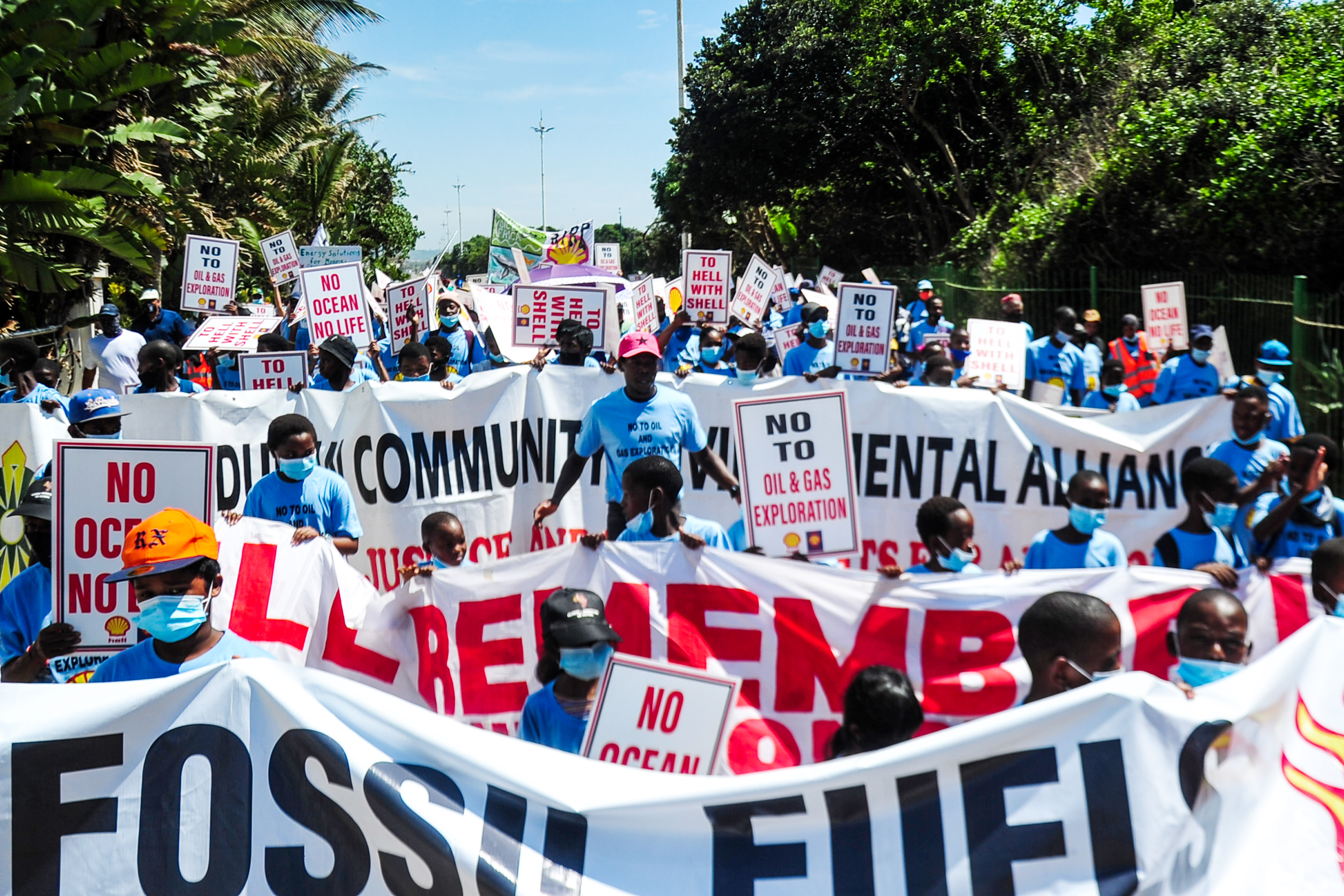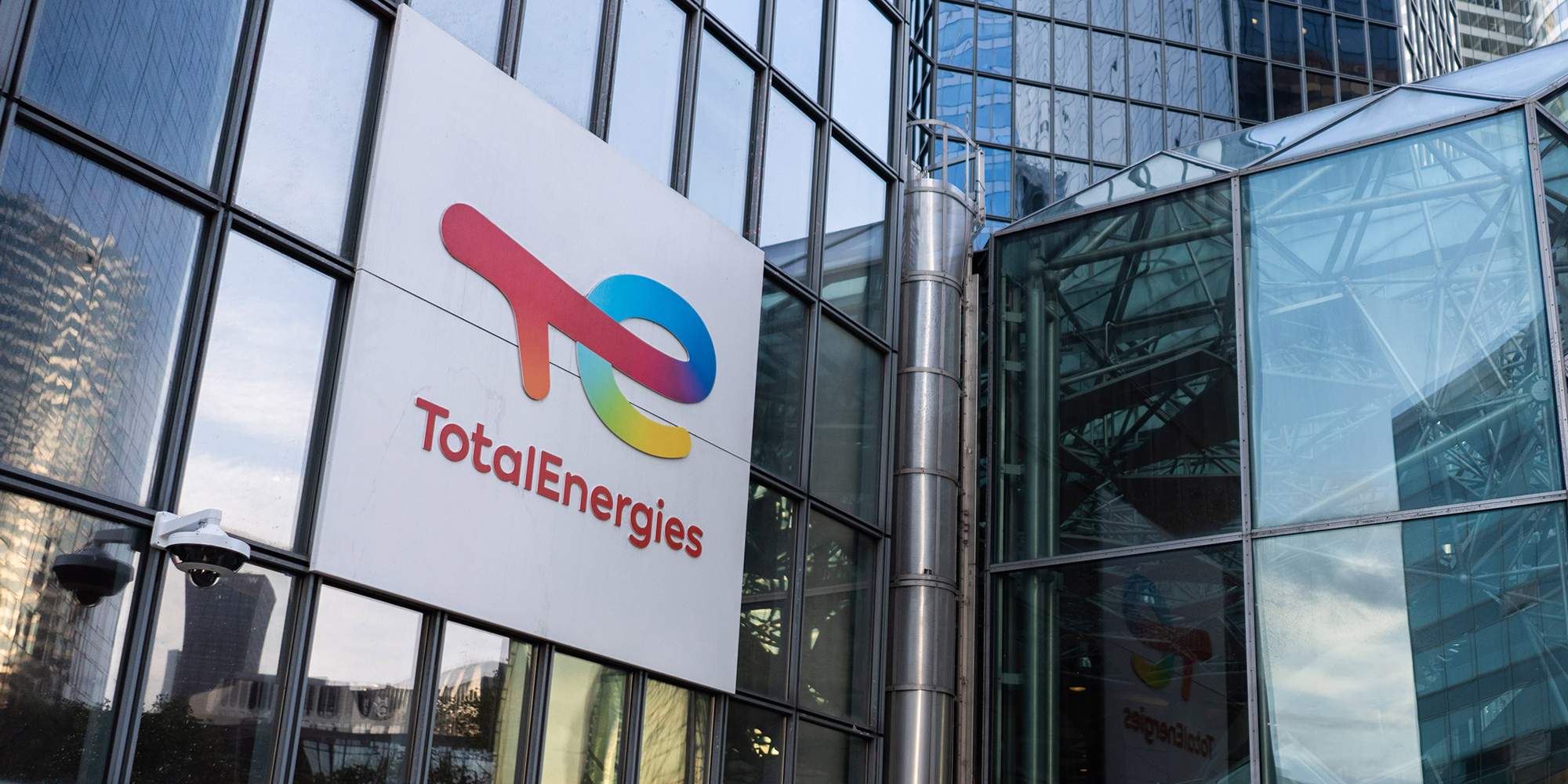The latest skirmish in South Africa’s battles over offshore drilling and exploration has been won by big oil.
Reuters reported on Monday that Environment Minister Barbara Creecy had rejected an appeal launched to stop Total from drilling in Block 5/6/7 which covers around 10,000 square kilometres offshore between Cape Town and Cape Agulhas.
The Department of Forestry, Fisheries and the Environment (DFFE) confirmed the report to Daily Maverick and provided the ruling. Parties who object can apply for a judicial review of the decision within 180 days.
The appeal sought to convince Creecy to revoke the environmental authorisation granted in April by the Department of Mineral Resources and Energy (DMRE), citing concerns about possible oil spills, noise and the impact on marine life, as well as an alleged lack of public consultation.
Creecy, in her capacity as the appellate authority, dismissed such concerns in the detailed 144-page ruling.
“The authorisation was rational and reasonable ... I submit that this ground of review has no merit and is accordingly dismissed,” Creecy said in the ruling, dated 24 September.
Among other issues, Creecy noted that: “Offshore South Africa, 358 wells were drilled with no incidents of a well blow-out to date.”
Creecy said she was satisfied that the public participation process was conducted in line with regulatory requirements.
“I am therefore satisfied that the impacts of noise and light have been adequately assessed and mitigated to ensure low impacts on the receiving environment. As such, this ground of appeal is dismissed,” Creecy said.
The drilling block is about 60km from the coast at its closest point and 170km at its furthest, in water depths ranging from 700 metres to more than 3km. The project is expected to last 10 months – its short duration also informed Creecy’s decision – and five wells are to be drilled.
Offshore drilling and exploration, including seismic surveys, have become hot-button topics in South Africa against the backdrop of mounting concerns about climate change linked to fossil fuel usage and other environmental issues.
 Durban environmental activists, fishermen and community members march from Suncoast Beach to South Beach on Saturday, 11 December 2021 in protest against Shell’s planned seismic surveys off the Wild Coast. (Photo: Gallo Images / Darren Stewart)
Durban environmental activists, fishermen and community members march from Suncoast Beach to South Beach on Saturday, 11 December 2021 in protest against Shell’s planned seismic surveys off the Wild Coast. (Photo: Gallo Images / Darren Stewart)
Shell’s bid to conduct seismic surveys off the Wild Coast has also floundered in the face of legal challenges, as have similar initiatives by other companies off the West Coast.
Regarding Total’s offshore plans, NGO The Green Connection has alleged that they threaten a “blue corridor” of marine biodiversity:
“TotalEnergies plans to invest around $3-billion to launch operations in South Africa’s waters in areas of spectacular marine biodiversity, at the expense of wildlife and of small-scale fishers’ livelihoods,” it says on its website.
“The oil & gas French major is knowingly developing its exploitation project in an area of strong currents and extraordinary species richness, which serves as a ‘blue corridor’ as well as feeding or nesting grounds for thousands of whales, fur seals, penguins, petrels, albatrosses, gannets and endangered leatherback turtles.”
For its part, the DMRE is determined to see South Africa develop its hydrocarbon potential.
Minerals and Energy Minister Gwede Mantashe has decried the efforts of activists to block such activities which he has insinuated are Western and CIA plots to hamper the country’s economic development.
Read more in Daily Maverick: Gwede Mantashe’s preposterous attacks on civil society have zero basis in truth
Mantashe’s beliefs aside, it is true that offshore exploration and potential finds could produce a windfall of investment for South Africa’s battered economy and possibly provide short-term energy security.
But such projects run the very real risk of becoming “stranded assets” as the global green energy transition and decarbonisation initiatives pick up pace to address rapid climate change.
The world has just experienced the hottest August on record, the latest in a string of such records this year, according to the US National Oceanic and Atmospheric Administration.
South Africa’s economy, which remains heavily reliant on coal and unreliable Eskom, also needs to decarbonise to remain competitive as key markets such as the EU impose tariffs linked to the carbon footprint of imported goods.
The scientific jury on issues such as seismic surveys remains out – the peer-reviewed literature on its impacts is all over the show – but the oil sector’s economic and social track record in Africa is beyond a doubt.
It has been corrosive, giving rise to corruption and conflict on a grand scale while undermining other sectors of oil-rich economies. Witness Angola, Nigeria and Equatorial Guinea, among others.
A bubbling oil and gas industry under the ANC would clearly be a recipe for disaster.
Meanwhile, expect more legal challenges from civil society to drilling and exploration activities. DM
https://www.youtube.com/watch?v=REeWvTRUpMk




 The March with us to Stop Shell protest at North Beach in Durban on 11 December 2021. (Photo by Gallo Images / Darren Stewart)
The March with us to Stop Shell protest at North Beach in Durban on 11 December 2021. (Photo by Gallo Images / Darren Stewart) 